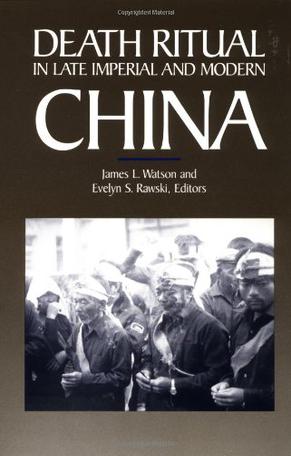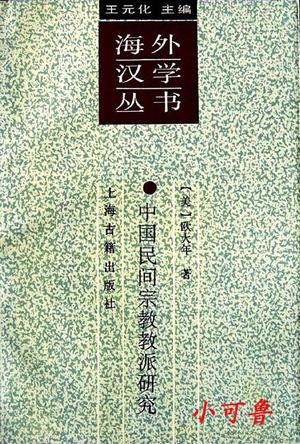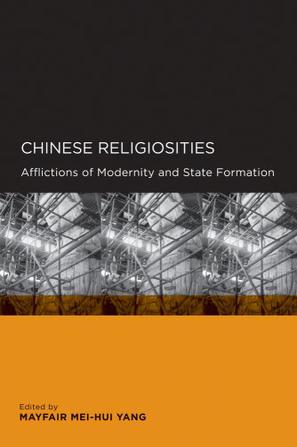-

中国转向内在
《中国转向内在——两宋之际的文化内向》(美)刘子健著,赵冬梅译, 江苏人民出版社出版。 在北宋与南宋之间,中国文化发生了一次重大的转型,即从外向的汉唐文化转向内向的宋明文化。对这个转型,学者从不同的角度给予了不同的诠释,美国宋史研究学者刘子健教授在他的《中国转向内在——两宋之际的文化内向》一书中,对转型的诸多问题作了新的诠释。首先,关于两宋之际文化转型的性质。美国早期汉学家曾普遍把宋代中国成为“近代初期”,其根据是这一时期出现了欧洲近代前夜的一些特征,如大城市兴起、市民阶层形成、市民文化繁荣、手工业发展、贸易发达、纸币出现、文官制度成熟等。但作者不同意这样的看法,认为形同而实异,那些被描述为近代化的东西不仅没有导出近代化,而且新的意识形态——新儒家文化凝结为一种顽固的文化类型,成为后期中国古代社会的主流意识形态。因此,宋代以后的中国文化只是在旧的基础上发生新变化,这本身又成为传统的一部分。 其次,关于两宋文化转型的根据。作者对两宋文化的转型不满足于仅作思想史、文化史的分析,而是从历史变化的层面寻找其根本原因。他认为,两宋文化转型的基本原因是专制权力的扩张与强化,而这种扩张和强化是通过君相关系的一系列变化来实现的。在北宋及以前,君主专制往往通过被称为股肱大臣的宰相团队来实现,但是,这种情形在南宋高宗时发生了根本的变化。在女真人的入侵面前,主降派首领秦桧把另一位宰相赵鼎搞下台,而使自己成为唯一的宰相,由他一人向高宗负责。这样,君主的权力空前膨胀,体制上不再有任何形式的约束。从此,知识分子意识到,政治必须从影响君主开始,其余皆为其次。所以,新儒家的泰斗朱熹对皇帝强调“格物”以“致知”,进而达到“正心”、“诚意”。既然君主绝对专制的局面已经形成,君主的道德观念、思想意识就决定一切,在这种情形下,为了实现治国、平天下,就只有让君主皈依儒家学说“内圣”的一面。这样,中国的文化逐步转向内向。 再次,关于两宋文化转型的影响。新儒学原本是少数知识分子挣扎和奋斗的产物,它经历了争论、被宣布为异端、最终上升为国家正统思想意识的过程。但是,从历史的发展来看,新儒家的胜利是一场得不偿失的胜利。由于新儒家从“外王”转向了“内圣”,造成了他们对现实的隔膜与生疏,“平时袖手谈心性,临危一死报君王”成了他们的生存状态与真实写照。伴随着这种变化,在宋以后,宗法、贞节、孝道等观念大行其是,科举时文占据了士人的精神生活,这些导致中国政治文化长期处于稳定与停滞状态。也正因如此,起于明末清初的实学思潮成了一股文化解放思潮,在主流文化的压抑之下艰难地发展着,以致早期睁眼看世界的知识分子都要上溯顾(炎武)、黄(宗羲)。 由于刘子健主要从历史的角度诠释两宋文化的转型,对发生这种转型的内在文化理路较少顾及,宋代民族矛盾导致文化的巨大顿挫也是构成文化转型的重要因素。北宋以儒治国,号称“半部《论语》治天下”,但北宋被异族逐出中原、皇帝被异族所掳、割地输银的惨酷现实不能不在儒士心理上发生巨大震撼,对所信奉的儒家文化作出深刻的反省,其结果走向内向。 这点与该书结合起来看,对两宋文化的转型就会有一个较为全面的认识。 刘子健认为不是专制政体而是新儒家提供的改变社会的方式——个人的道德修养构成两宋文化转型的根本原因的观点,改变了惯常的有关中国文化的叙事方式,其学术意义是不可低估的。 本书为“海外中国研究丛书”之一。 (王保顶) -

Death Ritual in Late Imperial and Modern China
-

Revolutionary Discourse in Mao's Republic
What does the Chinese Communist Revolution teach us about the relationship between political discourse and real experiences and events? This unique interpretation of the revolutionary process in China uses empirical evidence as well as concepts from contemporary cultural studies to probe this significant question. David Apter and Tony Saich base their analysis on recently available primary sources on party history, English- and Chinese-language accounts of the Long March and Yan’an period, and interviews with veterans and their relatives. Written by an eminent political theorist well seasoned in comparative development and an internationally recognized China scholar, and abounding in new approaches to central issues, this incisive analysis will be welcomed by social theorists and China scholars alike. -

中国民间宗教教派研究
本书纵观了从汉代到本世纪上半叶民间宗教教派的历史以及与佛教各宗、道教、儒教、秘密结社、农民战争的关系、印度教的历史等。全书共20余万字。该书系美籍加拿大学者欧大年的学术代表作,1976年由哈佛大学出版,得到了西方学术界的高度评价。全书共分9章。 -

Mapping Meanings
Mapping Meanings is essentially a broad-ranged introduction to China’s intellectual entry into the family of nations. Written by a fine selection of experts, it guides the reader into the terrain of China's (late Qing) encounter with Western knowledge and modern sciences, and at the same time connects convincingly to the broader question of the mobility of knowledge. The late Qing literati's pursue of New Learning was a transnational practice inseparable from the local context. Mapping Meanings therefore attempts to highlight what the encountered global knowledge could have meant to specific social actors in the specific historical situation. Subjects included are the transformation of the examination system, the establishment of academic disciplines, and new social actors and questions of new terminologies. Both an introduction and a reference work on the subject. -

Chinese Religiosities
The long twentieth century in China and Taiwan has seen both a dramatic process of state-driven secularization and modernization and a vigorous revival of contemporary religious life. "Chinese Religiosities" explores the often vexed relationship between the modern Chinese state and religious practice. The essays in this comprehensive, multidisciplinary collection cover a wide range of traditions, including Buddhism, Daoism, Islam, Confucianism, Protestantism, Falungong, popular religion, and redemptive societies. Contributors include: Jose Cabezon, Prasenjit Duara, Ryan Dunch, Dru C. Gladney, Vincent Goossaert, Ji Zhe, Ya-pei Kuo, Richard Madsen, Rebecca Nedostup, David Palmer, Benjamin Penny, and Mayfair Mei-hui Yang.